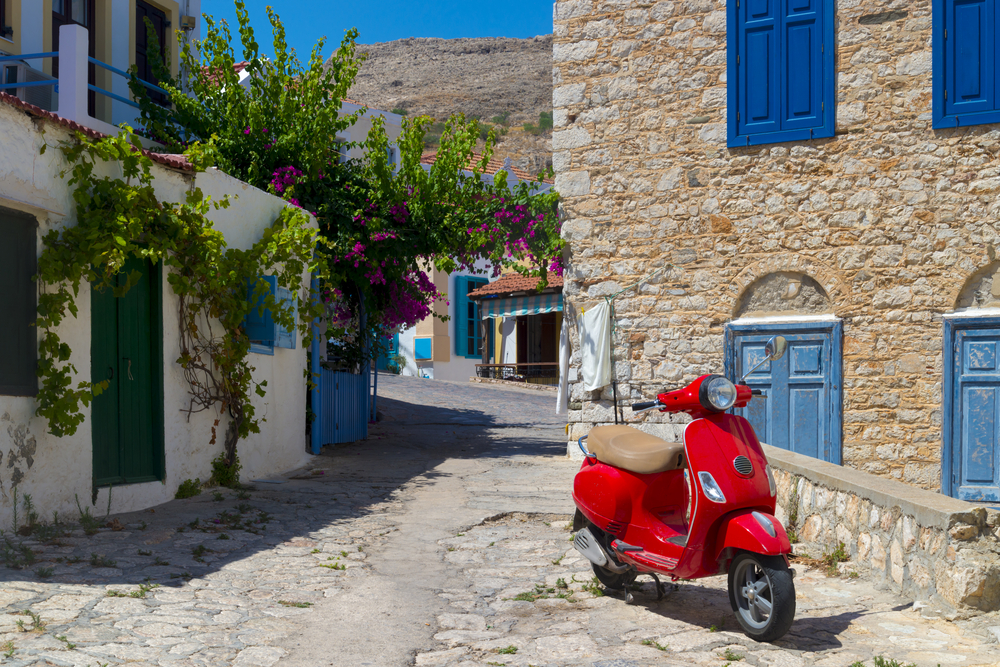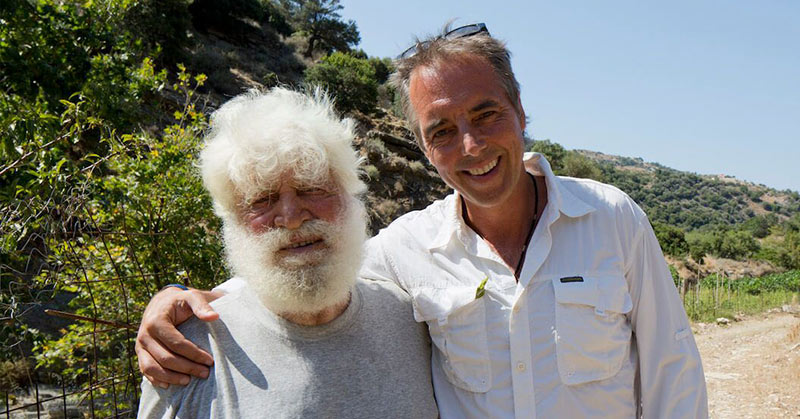Alzheimer’s is not a normal part of aging. This may be shocking for those who know how common this ailment is. The risk of developing Alzheimer’s increases with age, but it can also begin for people under the age of 65. For those stricken with the disease, the symptoms, such as memory loss, only worsen over time. About 200,000 Americans under 65 have Alzheimer’s and no cure has been found, although there are treatments available to slow its degenerative effects [1].
How Ikarians Avoid Alzheimer’s Disease?

Much of the research is spent on disease prevention, and the Greek island of Ikaria may hold a key to this. Ikaria has a population of 10,000 people and they live, on average, eight to ten years longer than Americans. Ikarians experience less heart disease, and cancer, and have almost no incidences of dementia. The chances of elderly Ikarians over 85 years old being stricken with the disease is only 10 percent [4], while one-third (33%) of Americans over 85 are afflicted with Alzheimer’s. [2]
Read More: Expert Encourages People to Take This Vitamin to Reduce Dementia Risk
1. The Mediterranean Diet

The residents of Ikaria eat a strict version of the Mediterranean diet, which mostly consists of fruits, vegetables, whole grains, beans, legumes, modest amounts of red wine, and olive oil. The Ikarian version of the diet eats less fish and meat, and more wild and garden greens, which have antioxidant effects. [5]
2. Herbal Teas and Diuretics

Dietary surveys show that Ikarians drink herbal teas every day. They use fresh herbs and leaves from their home gardens and the wild. They mix herbs like dandelions, sage, rosemary, and oregano, which are rich in anti-inflammatory compounds and mild diuretic compounds. These may play a role in regulating and avoiding high blood pressure.
Diuretics help the kidneys eliminate excess sodium and help with blood pressure. A Johns Hopkins report in the journal Neurology showed that potassium-sparing diuretics reduce the risk of Alzheimer’s by nearly 75%, while other antihypertensive medications reduced the risk by a third [3]. The connection between high blood pressure and Alzheimer’s has been known for years; the higher the blood pressure, the greater the risk of dementia. High blood pressure can harm blood vessels in the brain, damaging the areas responsible for memory and cognition.
“What we found was that if you didn’t have Alzheimer’s and you were taking blood pressure medication, you were somewhat less likely to develop dementia…” says Constantine Lyketsos, M.D., director of the Memory and Alzheimer’s Treatment Center at Johns Hopkins. [3] While it’s we don’t definitively know if these herbal teas play a role in the Ikrarian’s reduced risk of dementia, the potential connection is there. The diuretic and antioxidant properties could both theoretically play a role in lifelong cognitive health.
Read More: Blood Pressure Variability Linked to Increased Dementia Risk
3. Regular Exercise

Ikaria is on a mountain, so every trip to a friend’s house or store, or even a casual stroll, includes an uphill trek. This terrain gives the residents low-intensity physical activity on a regular basis. Compare that to the average routine of an American who sits in an office all day and tries to make up for it with a 30-minute workout. [6]
4. Village Living

Diet and exercise are go-to’s when we talk about improving our health, but there is another factor equally vital that doesn’t get as much attention as it deserves: social contact. In Ikaria, it’s hard to avoid being social with the expectation to make appearances at church, village festivals, and other celebrations. If a person is a no-show, they can expect their neighbors to come knocking to find out if they’re okay. This helps protect Ikarians from being as susceptible to loneliness and depression. People with depression are 50% more likely to develop dementia. [7]
5. Don’t Wait

Ikaria has one final lesson for those who wish to help prevent Alzheimer’s: Don’t wait. Ikarians maintain this healthy diet, exercise, and social groups for their entire lives. They don’t wait until they begin aging to improve their health. Many people think they’ll start exercising or eating better when they are older, but a healthier, stronger life should be attained so much earlier than that. Besides, it’s hard to turn your lifestyle around after developing decades of unhealthy habits.
It’s best to start slowly and keep these new healthy habits forever, and it’s best to start now.

- Switch to a whole-food, mostly plant-based diet.
- Get moving.
- Foster in-person social connections — a good morning/good night text won’t cut it. Become more active in your community, reconnect with old friends or family members, and stay active in your social circle.
It’s not about living a long life, it’s about living a good life. [4]
Read More: Can Picking Your Nose Contribute to Dementia and Alzheimer’s? An Expert Explains
Sources
- Alzheimer’s Association. What Is Alzheimer’s Disease? https://www.alz.org/alzheimers-dementia/what-is-alzheimers
- Alzheimer’s.net. 2019 Alzheimer’s Statistics https://www.alzheimers.net/resources/alzheimers-statistics/
- John Hopkins Medicine. Blood Pressure and Alzheimer’s Risk: What’s the Connection? https://www.hopkinsmedicine.org/health/conditions-and-diseases/alzheimers-disease/blood-pressure-and-alzheimers-risk-whats-the-connection
- Dan Buettner. Blue Zone. A Greek Island’s Ancient Secret to Avoiding Alzheimer’s. https://www.bluezones.com/2018/11/a-greek-islands-ancient-secret-to-avoiding-alzheimers/
- Jon Johnson. Our guide to the Mediterranean diet https://www.medicalnewstoday.com/articles/324221.php January 18, 2019
- Ashley Marcin. Are 5-Minute Daily Workout Routines Really Beneficial? https://www.healthline.com/health/5-minute-daily-workout-routines-really-beneficial#2 February 27, 2017
- Debra Umberson and Jennifer Karas Montez. Social Relationships and Health: A Flashpoint for Health Policy https://www.ncbi.nlm.nih.gov/pmc/articles/PMC3150158/ Aug 4, 2010

